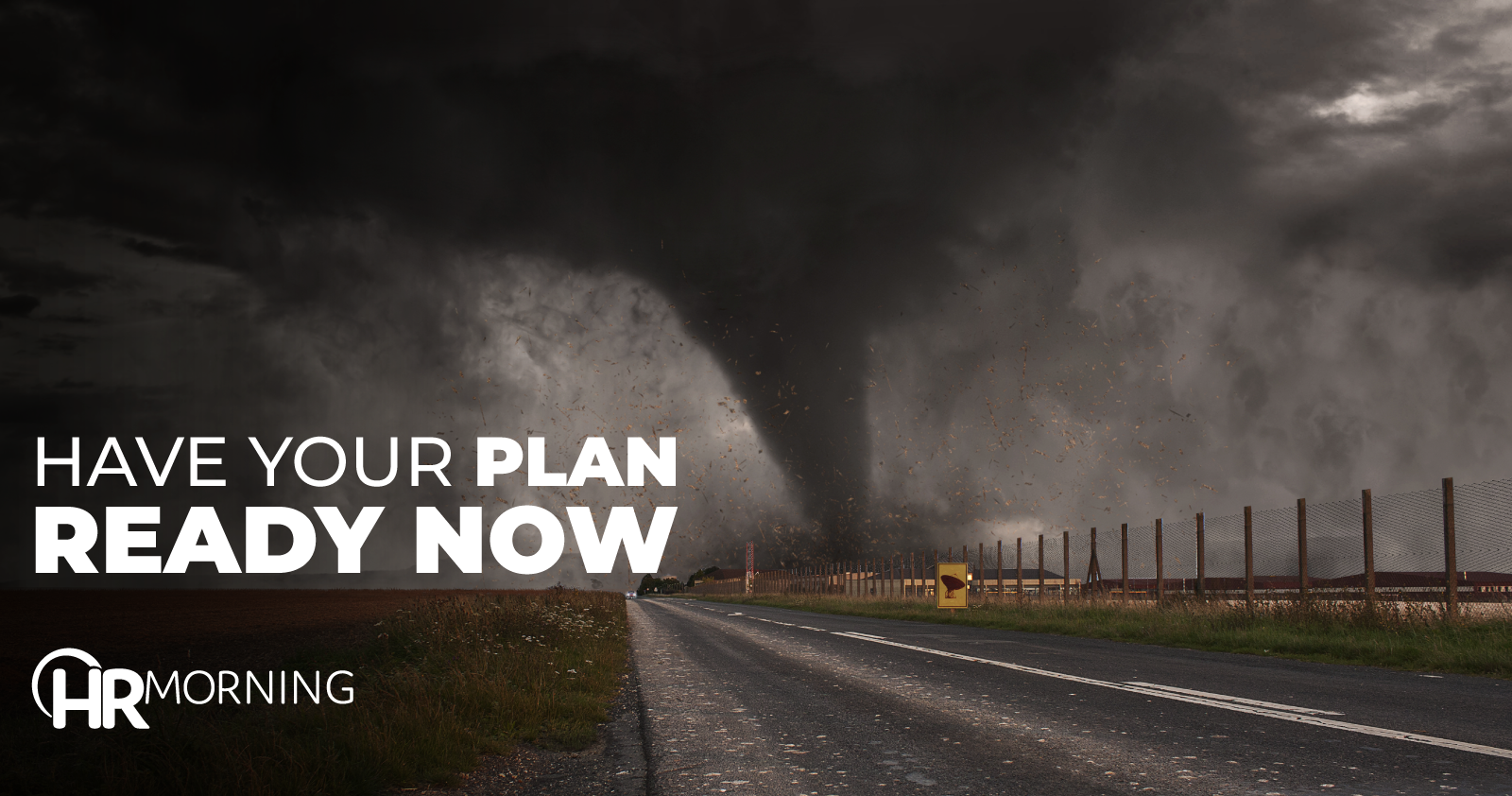Last month, several devastating tornadoes resulted in the deaths of six workers in Illinois, and eight more in Kentucky. In both instances, employers had ordered these employees to continue working through the tornado warnings.
And while most employers wouldn’t risk their employees’ safety like this, it acts as a reminder for all to be prepared for natural disasters and other workplace emergencies.
Plan now
Under OSHA, employers have a duty to provide a safe working environment for their employees — and this includes emergency preparedness. A lot of people have no clue what to do if they’re at work and a tornado or earthquake strikes.
Here’s how employers can prepare their workplace, according to employment law attorney Brittany Buccellato of the firm Akerman LLP.
- Have a written emergency plan. It’s crucial to not only have a plan for every potential disaster or emergency, but to write it down and distribute the policy to employees. Some examples of what your emergency plans should include are how employees will be notified of an emergency, how and where employees should evacuate and where they should all meet up afterwards. It’s important to also identify leaders so employees will know who to go to and ask questions.
- Conduct routine training on preparedness. A written plan is a good start, but it’s not enough on its own. Drills on a variety of different emergencies are essential, since people learn best by doing. This will also let you know if there are any kinks in your procedures, allowing you to fix them before an emergency happens.
- Don’t forget about disabled employees. It’s crucial to ensure your plans make allowances for disabled workers. Are they able to easily evacuate, or will they need some kind of assistance? Ask these questions now so you can have a plan in place.
Another important message to communicate to employees is if they don’t feel safe at any time during an impending storm or other natural disaster, let them know it’s OK to speak up, and their job won’t be in danger if they want to leave. The tragedies that happened in Illinois and Kentucky should never happen again.

